Tools Required
| • | SA91108NE Link GRAPHIC here -- Universal Tube Bender |
| • | SA9101E -- Brake Pipe Flaring Kit |
Important: All brake pipes are serviced with original equipment pipes except for the right front and underbody brake pipes.
ISO/DIN Flare
Caution: Always use double walled steel brake pipe when replacing brake pipes. The use of any other pipe is not recommended and may cause brake system failure. Carefully route and retain replacement brake pipes. Always use the correct fasteners and the original location for replacement brake pipes. Failure to properly route and retain brake pipes may cause damage to the brake pipes and cause brake system failure.
Right Front Brake Pipe | |
|---|---|
Components | Nut Size |
Tighten the Manifold Valve Connection (Non-ABS) to 16 N·m (12 lb ft) | M10x1.0 |
Tighten the ABS Control Unit Connection to 16 N·m (12 lb ft) | M12x1.0 |
Tighten the Brake Hose Connection | M10x1.0 |
Underbody Brake Pipes | |
Tighten the Proportioning Valve Connection (Non-ABS) to 16 N·m (12 lb ft) | M10x1.0 |
Tighten the Front Brake Pipe Connection (ABS to: 16 N·m (12 lb ft) | M10x1.0 |
Tighten: Rear Crossover Connection: 16 (12 lb ft) | M10x1.0 Female |
Tighten the: Rear Brake Hose Connection to 16 N·m (12 lb ft) | M10x1.0 |
Brake Pipe-to-Union | |
Tighten the Female Connector to 16 N·m (12 lb ft) | M10x1.0 |
- Obtain the recommended pipe and fittings of the correct size. The outside diameter of the pipe is used to specify the size. Saturn uses 4.75 mm (0.187 in) brake pipe.
- Remove the brake pipe to be repaired from the vehicle.
- Cut the section to be replaced from the brake pipe using an appropriate saw. Do not use a tube cutter to cut new pipe, the end must be flat and square to produce a good flare.
- Determine the length of pipe required for the repair by measuring the section to be replaced with a string, adding 3.2 mm (1/8 in.) for each flare.
- Cut the new pipe using an appropriate saw. Do not use a tube cutter to cut new pipe; the end must be flat and square to produce a good flare.
- Remove the burrs from inside and outside diameters of the cut pipe using a deburring tool.
- Install the required fittings.
- Clamp theSA9101E , or equivalent securely in a vice.
- Install the handle into the operating cam.
- Loosen the die clamp screw and rotate the locking plate to expose the die carrier opening.
- Select the required die set (4.75 mm DIN) and install it in the carrier with the full side of either half facing the clamp screw and the counter bore of both halves facing the punch turret.
- Insert the prepared pipe through the rear of the die and push it forward until the end of pipe is flush with the face of die.
- Ensure that the rear of both halves of the die rest against the hexagon die stops. Rotate the locking plate to the fully closed position and clamp the die firmly by tightening the clamp screw.
- Select appropriate operation 1 (OP 1) punch by rotating the punch turret until the correct size (4.75 mm DIN) points towards the open end of the pipe to be flared.
- Pull the operating handle against the resistance of pipe to create the flare and return the handle to the original position.
- Release the clamp screw and rotate the locking plate to the open position.
- Remove the die set and pipe and separate them by gently tapping both halves on a bench.
- Inspect pipe flare for correct shape, size and any flaws.
- Repeat procedure, steps 6 through 18 for pipe the being repaired.
- Bend the pipe using an approved pipe bending tool such as SA91108NE or equivalent), using the section to be replaced as a guide.
- Install the new repaired pipe to the old pipe using a female union.
- Install repaired pipe assembly into vehicle.
- Bleed the brake system. Refer to Hydraulic Brake System Bleeding .
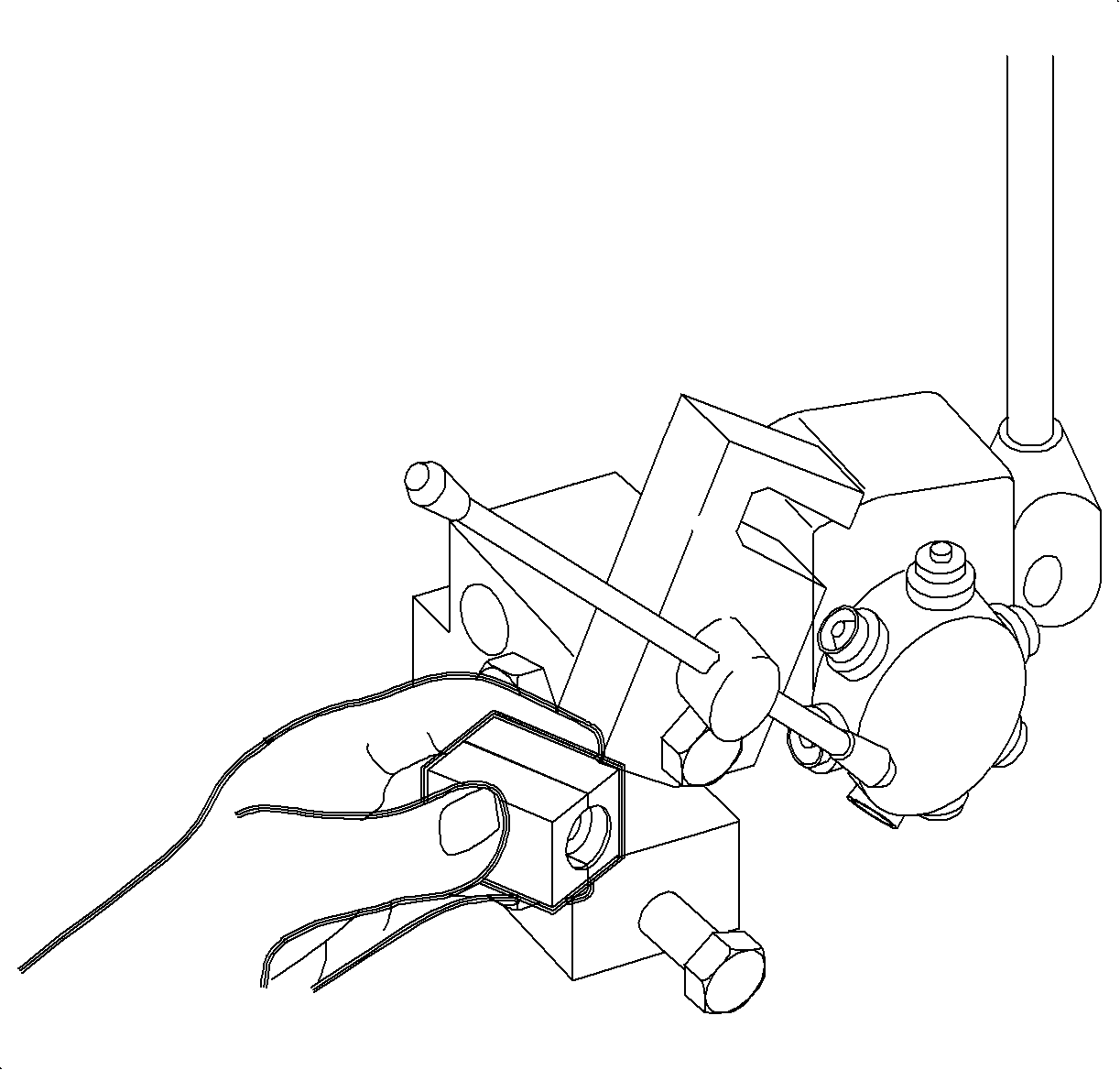
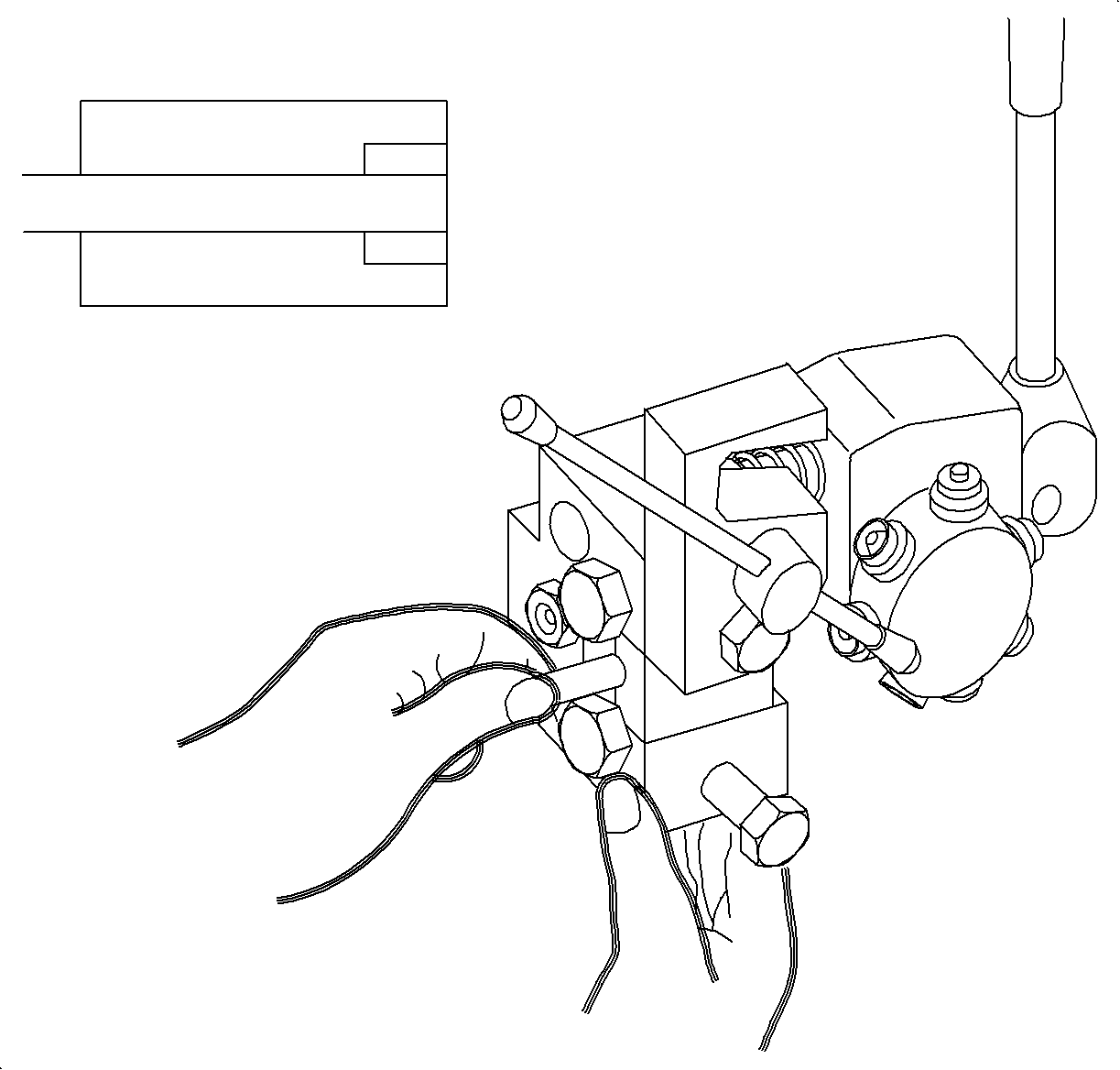
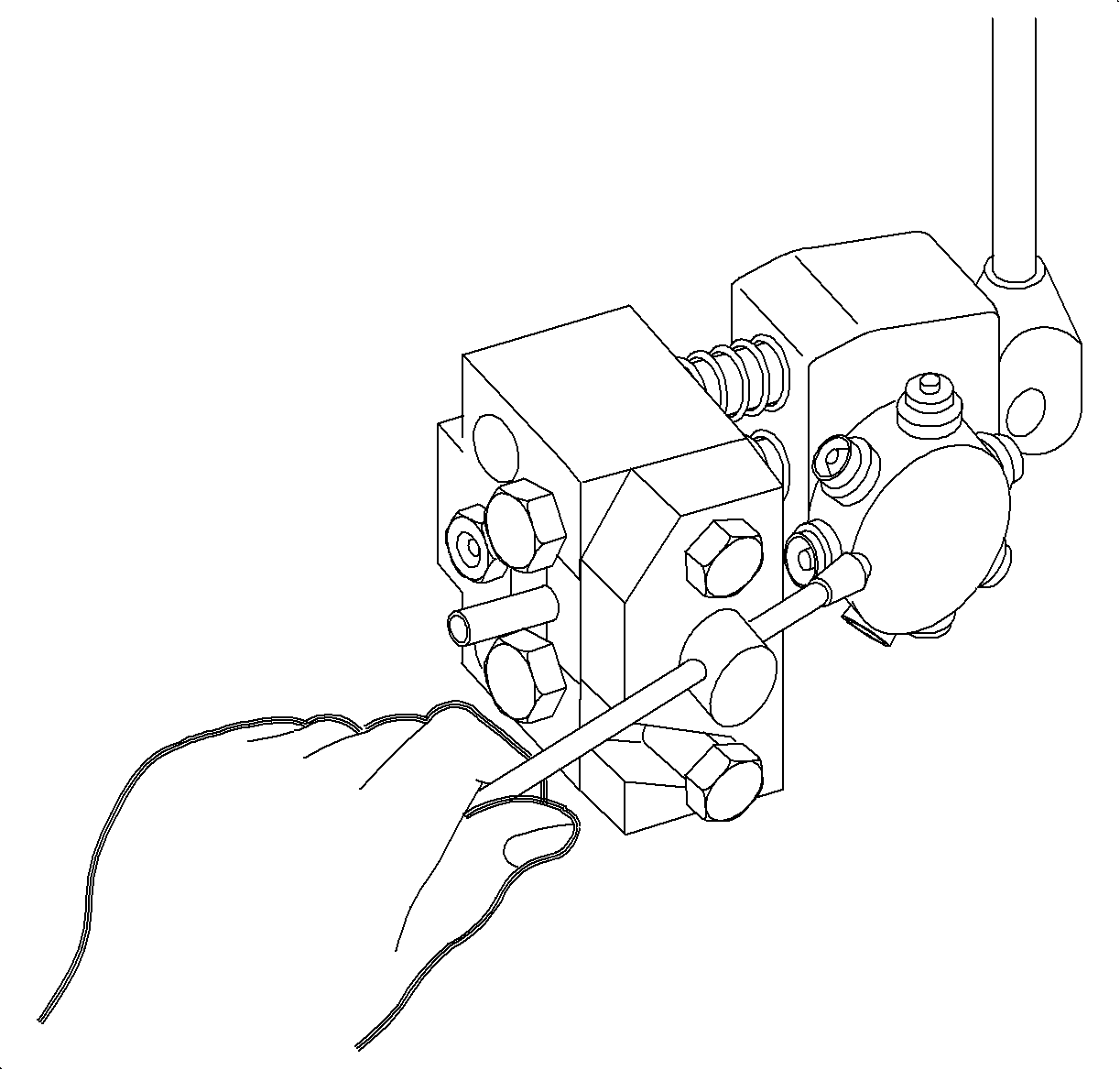
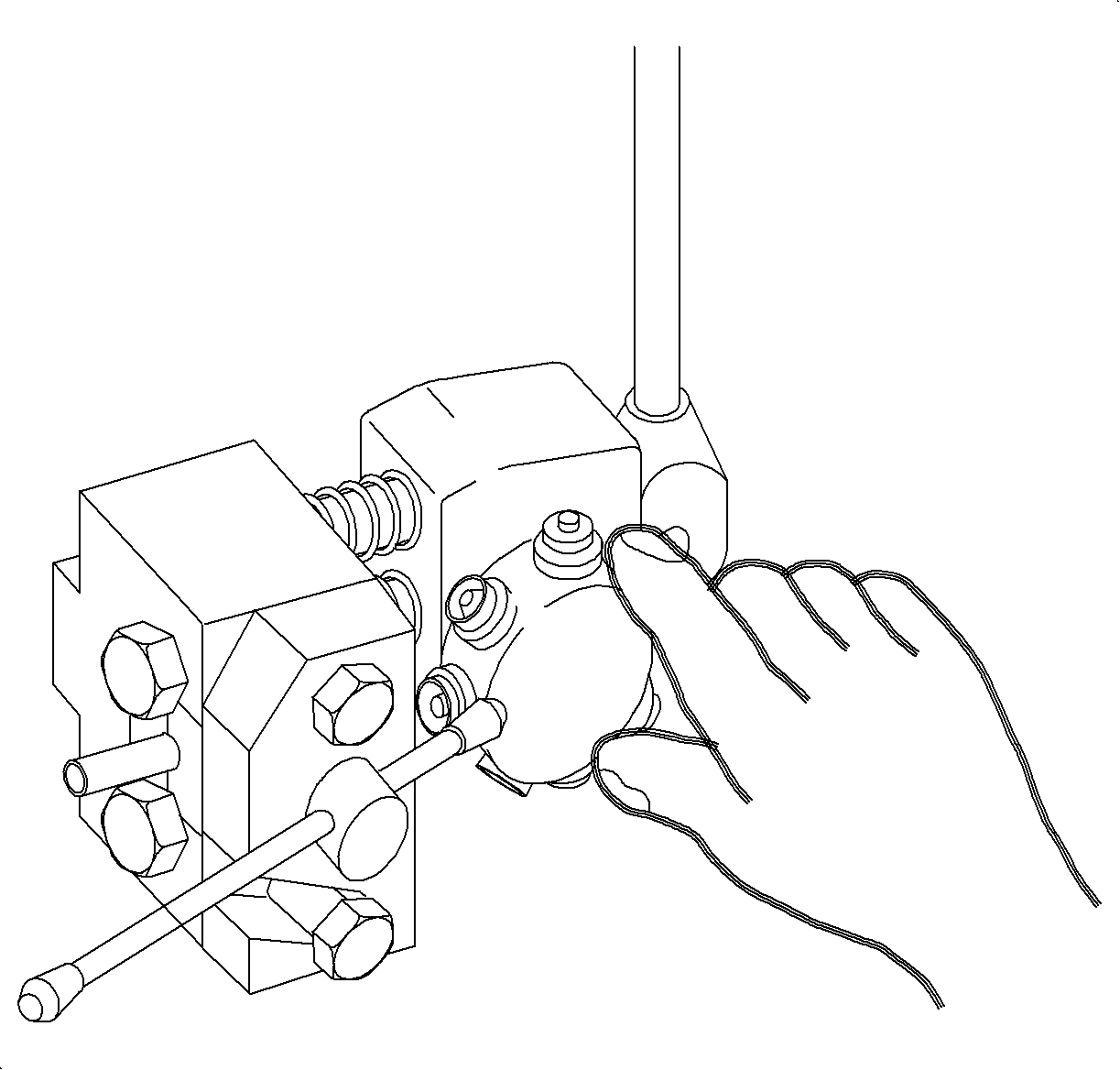
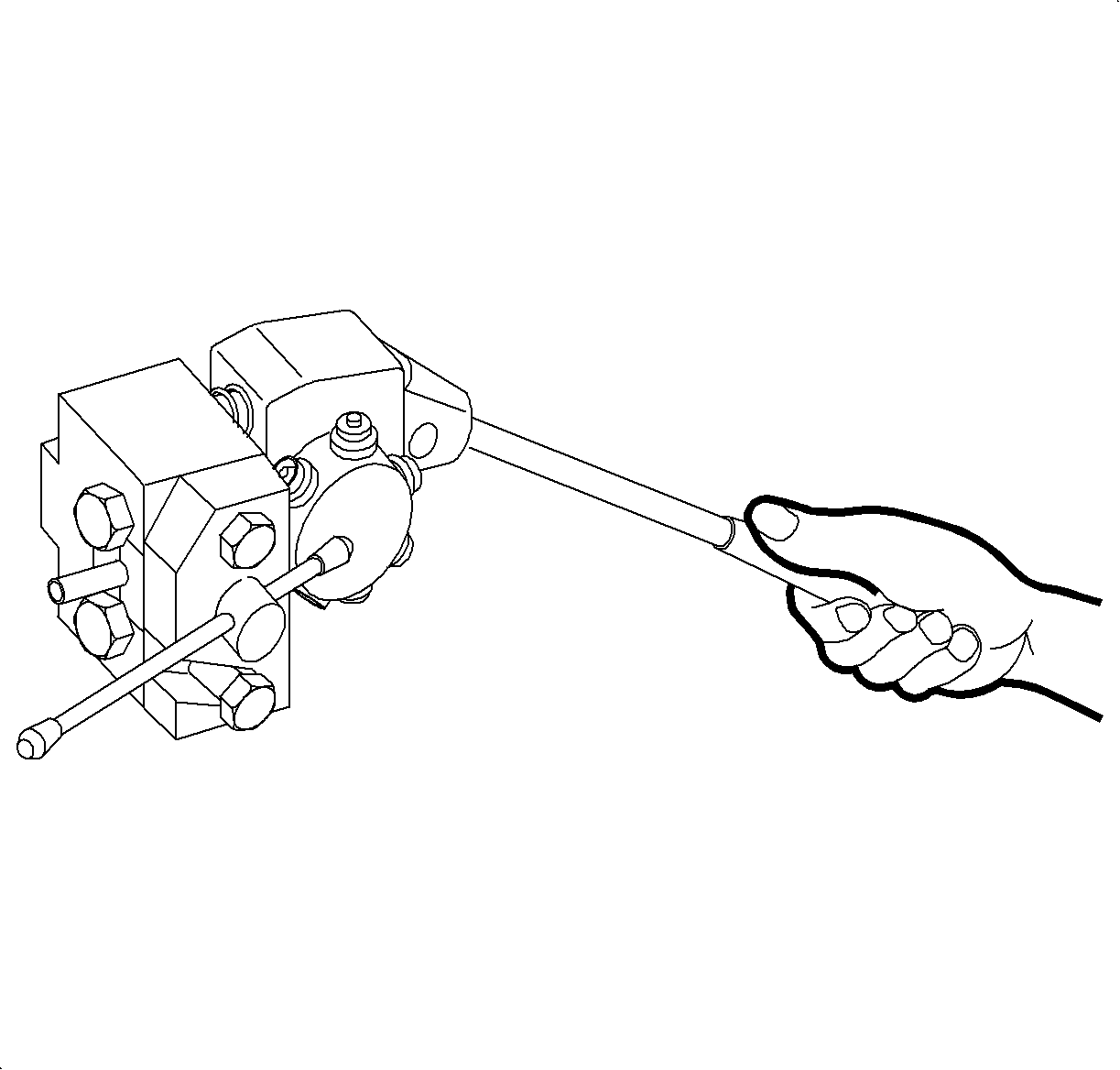
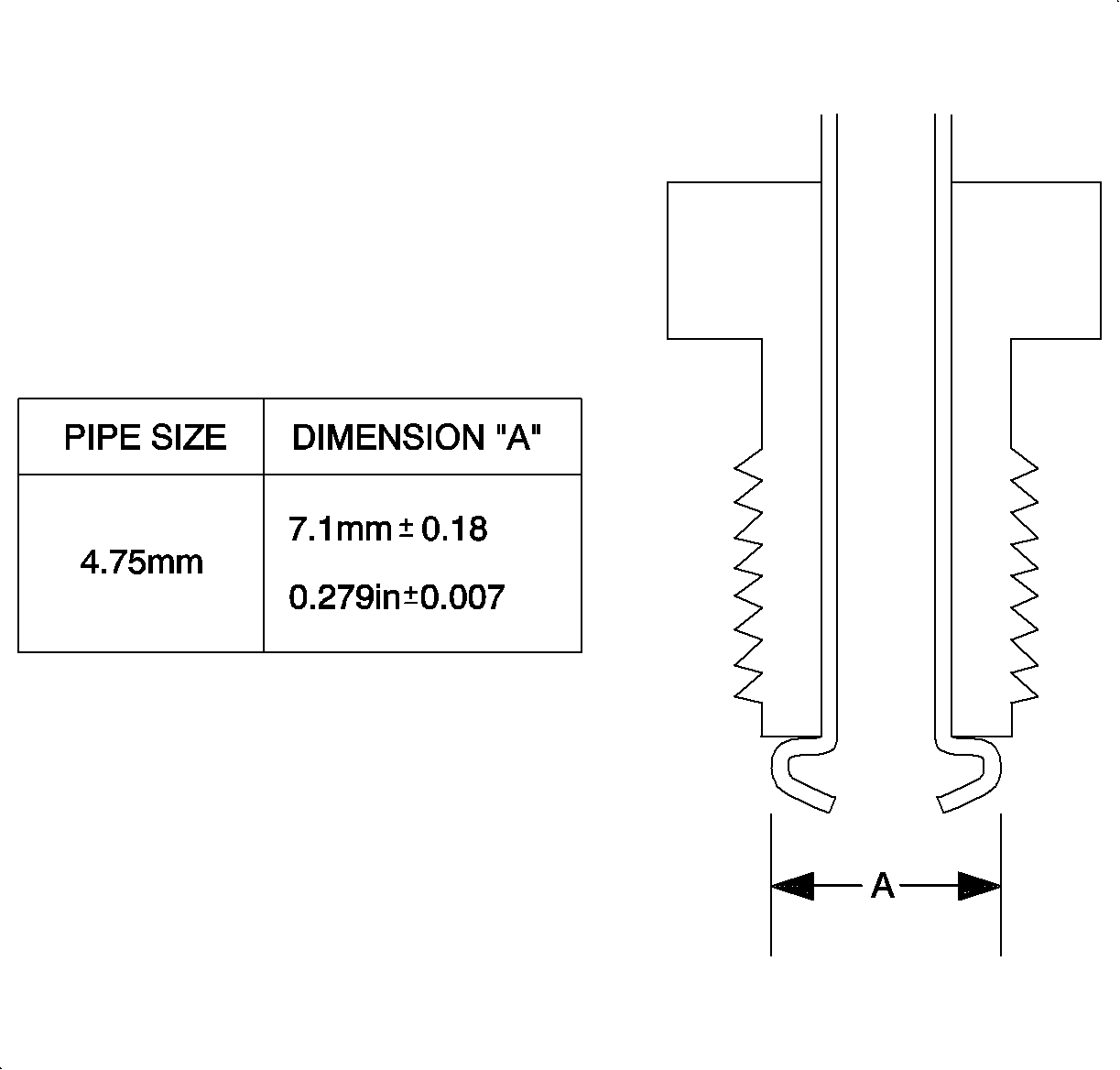
Notice: Refer to Fastener Notice in the Preface section.
Tighten:
Tighten the female repair union-to-vehicle fitting to 16 N·m (12 lb ft).
Tighten:
Tighten the brake pipe fitting connection to 16 N·m (12 lb ft).
